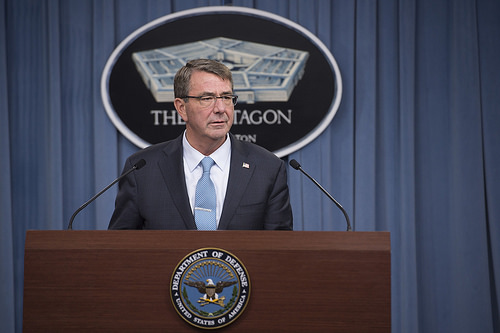 For the seventh year in a row, Congress has failed to pass a defense appropriations bill in time to start the fiscal year. And for the past four years, the Defense Department and other federal agencies have been struggling with the impact of sequestration, which imposed cuts that were never meant to be implemented, but were supposed to prod both parties to come together and reach a budget agreement. The Defense Department has done its best to manage through this prolonged period of budget uncertainty, making painful choices and trade-offs among the size, capabilities and readiness of the joint force.
For the seventh year in a row, Congress has failed to pass a defense appropriations bill in time to start the fiscal year. And for the past four years, the Defense Department and other federal agencies have been struggling with the impact of sequestration, which imposed cuts that were never meant to be implemented, but were supposed to prod both parties to come together and reach a budget agreement. The Defense Department has done its best to manage through this prolonged period of budget uncertainty, making painful choices and trade-offs among the size, capabilities and readiness of the joint force.
The nation cannot allow this to become the new normal. While Washington struggles to get its house in order, the challenges around the world continue. China continues its dubious and destabilizing land-reclamation activities in the South China Sea. Islamic State continues its barbarous campaign. Russia continues to violate the sovereignty of Ukraine and pour gasoline on the Syrian conflict.
In this uncertain security environment, the U.S. military needs to be agile and dynamic. What it has now is a straitjacket. At the Defense Department, we are forced to make hasty reductions when choices should be considered carefully and strategically.
At the same time, where we have proposed measured, smart decisions to generate vital savings by consolidating our health-care plans, retiring legacy aircraft and unmodernized ships, or reviewing military bases to reduce excess capacity, Congress has repeatedly advanced defense-policy measures that limit or reject these hard decisions, amounting to yet another budget cut.
A climate of indiscriminate cuts and budget turbulence is managerially inefficient and therefore actually wasteful to taxpayers and industry. It’s dangerous for military strategy. Frankly, it’s embarrassing around the world. And it is deeply dispiriting to the U.S. military’s talented people and their families.
Mr. Carter is the U.S. secretary of defense.
Image: Secretary of Defense Ash Carter, Oct. 15, 2015 (photo: Sgt. Adrian Cadiz/Department of Defense)
